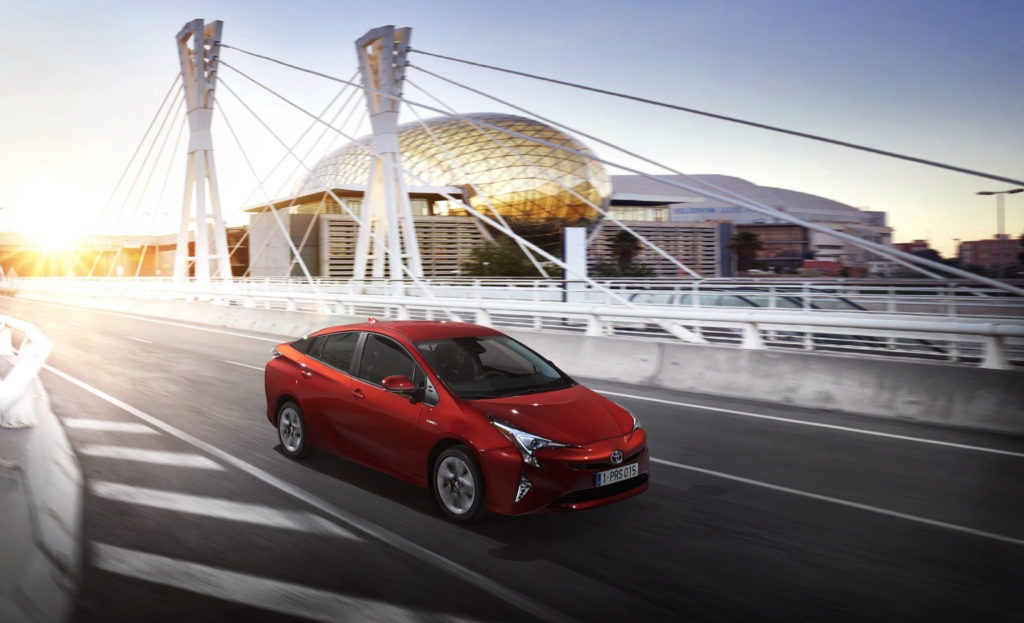Toyoda’s impending ‘sense of crisis’, fears age-old ‘Toyota Way’ unsuitable for upcoming auto revolution
11 May 2017

11 May 2017
Toyota president Akio Toyoda has warned of a ′sense of crisis’ at the company, as operating profit waned 20% in the fourth quarter and is bracing for two full years of falling profits. Analysts do not expect Toyota to regain 2016 profit levels for another three years as it streamlines its operations. Retail vehicle sales have stagnated since reaching 10 million vehicles in 2014 – forecast to be only 10.25 million in 2018 – which has allowed Volkswagen to overtake it in global sales, although Toyota profits remain far higher.
In ′60s and ′70s America, Toyota broke through following its renowned ′Toyota Way’, where while petrolheads at Ford and General Motors obsessed over the Mustang and Camaro, Toyota focussed on giving ordinary people what they wanted: affordable, sensible family cars that were reliable. They kept steadfast to the usual, the consensus, following their 13th Principle of nemawashi, literally ′going from the roots’ – finding the consensus by being cautious and prudent about change.
The idea being that the greatest success is almost always found in the centre ground – where the most people are. As such, it was not until after Honda launched its Acura brand and this centre ground had clearly shifted that Toyota responded with the founding of its premium brand Lexus. This is also why Toyota has been resistant with electric cars – consumers have not yet rallied around them.
Toyoda is concerned about whether its Way is still relevant as the industry approaches its biggest shift since Ford’s mass production of the motor car, with fields such as autonomy, connected cars, electric cars and mobility services set to usher in the second auto revolution.
With process of reflection also being part of the Toyota mantra, Toyoda said: ′I feel a strong sense of crisis about whether or not we are actually executing car-making from the perspective of the customer in all Toyota workplaces, from development, production, procurement and sales, all the way to administrative divisions″¦ In the case of sports, booking two consecutive years of losses would mean you are failing,’ adding: ′I hate to be beaten.’
Toyota is struggling as its attempts to gauge what constitutes the consensus for consumers in the future of the industry. The market appears to be fragmenting.
On the one hand, consumers are trending towards wanting large, less fuel efficient SUVs and crossovers, with Toyota’s RAV4 crossover looking set to overtake Toyota’s Camry and even its world best-selling Corolla.
On the other hand, governments are pressuring consumers to switch to electric vehicles, which consumers are yet to accept.
Meanwhile, Toyota seems unsure which new technologies entering the industry will form the middle ground. While its R&D budget is among the top ten of all global companies – no matter carmakers – with only Volkswagen spending more, considering its success and size it is merely coasting compared to what it could be spending.
As a percentage of net sales, it is amongst the lowest spending carmakers in developed countries, with only BMW, Subaru, Kia, debt-laden FCA (Fiat Chrysler) and struggling Mitsubishi spending less. Nevertheless, Toyota has announced its will join premium carmakers including Tesla, Mercedes and Volvo in using Nvidia’s Drive PX computing tech for its autonomous vehicles. For top-selling volume brand Toyota to join the mix seems a rare ambitious move by Toyota.
Nevertheless, Toyota’s 2018’s ¥1.05 trillion (€8.48 billion) R&D budget is the third consecutive year expenditure has essentially remained the same, while other players including Daimler, Volkswagen and Ford development budgets have been soaring.
The fear is that as the fast-paced technology world encroaches into the auto world, Toyota risks waiting too long to change.
Photograph courtesy of Toyota